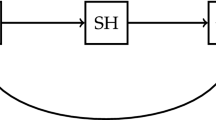Abstract
There is an accepted framework for producing scientific evidence (the philosophy of science), and another for using random samples from a population to summarize that evidence (statistical inference). Central to the accepted philosophy of science is the idea of falsifiability, which is generally adhered to in randomized controlled trials (RCTs) using the null hypothesis significance testing approach defined by Neyman and Pearson. Beyond the tight control of RCTs, the flexibility of statistical inference means it is relatively easy to overlook falsifiability, thereby undermining the validity of any scientific conclusion. Perhaps the typical example of this is HARKing (hypothesizing after the results are known), where a statistical analysis of sample data reveals a significant effect that has a very convincing explanation only in retrospect and is reported as if hypothesized a priori. Such ‘discoveries’ may well be valid, but the rate at which they might not be is unknown. This is contributing to a crisis of replication in medical research, where results from published studies are often not reproducible.
Science is considered a difficult subject, and it may not be appropriate to teach the philosophy behind it to medical students who have other time commitments, including also the learning of difficult methods of statistics. Under these circumstances, what can be taught to promote the use of statistics within the scientific framework and mitigate the crisis of replication? roposed suggestions range from producing registered study protocols to the abandonment of statistical significance; importantly, both can be implemented without need for expertise in philosophy. Despite this, the replication crisis persists and the implementation of any proposed solution, and perhaps even awareness of them, is the exception. As (if) we move to better scientific practice, it is likely that those who teach statistics will be required to include the suggestions into their courses.
Access this chapter
Tax calculation will be finalised at checkout
Purchases are for personal use only
Similar content being viewed by others
References
Reproducibility and reliability of biomedical research. The Academy of Medical Sciences [Internet]. [cited 2021 Oct 7]. Available from https://acmedsci.ac.uk/policy/policy-projects/reproducibility-and-reliability-of-biomedical-research.
Stupple A, Singerman D, Celi LA. The reproducibility crisis in the age of digital medicine. NPJ Digit Med. 2019;2(1):1–3.
Baker M. 1,500 scientists lift the lid on reproducibility [Internet]. Nature 2016 [cited 2021 Oct 8]. Available from https://www.nature.com/articles/533452a.
Amrhein V, Korner-Nievergelt F, Roth T. The earth is flat (p > 0.05): significance thresholds and the crisis of unreplicable research. PeerJ. 2017;5:e3544.
Open Science Collaboration. Estimating the reproducibility of psychological science. Science. 2015;349(6251):aac4716.
Dixon P, O’reilly T. Scientific versus statistical inference. Can J Exp Psychol. 1999;53(2):133–49.
Mitra S. An analysis of the falsification criterion of Karl Popper: a critical review. Tattva J Philos. 2020;12(1):1–18.
Simmons JP, Nelson LD, Simonsohn U. False-positive psychology: undisclosed flexibility in data collection and analysis allows presenting anything as significant. Psychol Sci. 2011;22(11):1359–66.
Horton R. Offline: what is medicine’s 5 sigma? Lancet. 2015;385(9976):1380.
Kerr NL. HARKing: hypothesizing after the results are known. Personal Soc Psychol Rev. 1998;2(3):196–217.
Dickersin K, Chan S, Chalmersx TC, Sacks HS, Smith H. Publication bias and clinical trials. Control Clin Trials. 1987;8(4):343–53.
Joober R, Schmitz N, Annable L, Boksa P. Publication bias: what are the challenges and can they be overcome? J Psychiatry Neurosci. 2012;37(3):149–52.
Perezgonzalez JD. Fisher, Neyman-Pearson or NHST? A tutorial for teaching data testing. Front Psychol. 2015;6:223.
Cohen J. The earth is round (p < .05). Am Psychol. 1994;49:997–1003.
Nosek BA, Ebersole CR, DeHaven AC, Mellor DT. The preregistration revolution. Proc Natl Acad Sci. 2018;115(11):2600–6.
Amrhein V, Greenland S, McShane B. Scientists rise up against statistical significance. Nature. 2019;567(7748):305–7.
Wasserstein RL, Schirm AL, Lazar NA. Moving to a World Beyond “ p < 0.05”. Am Stat. 2019;73(sup1):1–19.
Sudlow C, Gallacher J, Allen N, Beral V, Burton P, Danesh J, et al. UK Biobank: an open access resource for identifying the causes of a wide range of complex diseases of middle and old age. PLoS Med. 2015;12(3):e1001779.
Kim J, Bang H. Three common misuses of P values. Dent Hypotheses. 2016;7(3):73–80.
Button KS, Ioannidis JP, Mokrysz C, Nosek BA, Flint J, Robinson ES, et al. Power failure: why small sample size undermines the reliability of neuroscience. Nat Rev Neurosci. 2013;14(5):365–76.
Rencher AC, Pun FC. Inflation of R2 in best subset regression. Technometrics. 1980;22(1):49–53.
Hawkins DM. The problem of overfitting. J Chem Inf Comput Sci. 2004;44(1):1–12.
Lakens D. The practical alternative to the p value is the correctly used p value. Perspect Psychol Sci J Assoc Psychol Sci. 2021;16(3):639–48.
Dixon P. The p-value fallacy and how to avoid it. Can J Exp Psychol. 2003;57(3):189–202.
Goodman SN. Toward evidence-based medical statistics. 1: the p value fallacy. Ann Intern Med. 1999;130(12):995–1004.
Koul A, Becchio C, Cavallo A. Cross-validation approaches for replicability in psychology. Front Psychol. 2018;9:1117.
Author information
Authors and Affiliations
Corresponding author
Editor information
Editors and Affiliations
Rights and permissions
Copyright information
© 2023 The Author(s), under exclusive license to Springer Nature Switzerland AG
About this chapter
Cite this chapter
Tench, C.R. (2023). Statistics in a World Without Science. In: Farnell, D.J.J., Medeiros Mirra, R. (eds) Teaching Biostatistics in Medicine and Allied Health Sciences. Springer, Cham. https://doi.org/10.1007/978-3-031-26010-0_13
Download citation
DOI: https://doi.org/10.1007/978-3-031-26010-0_13
Published:
Publisher Name: Springer, Cham
Print ISBN: 978-3-031-26009-4
Online ISBN: 978-3-031-26010-0
eBook Packages: MedicineMedicine (R0)




